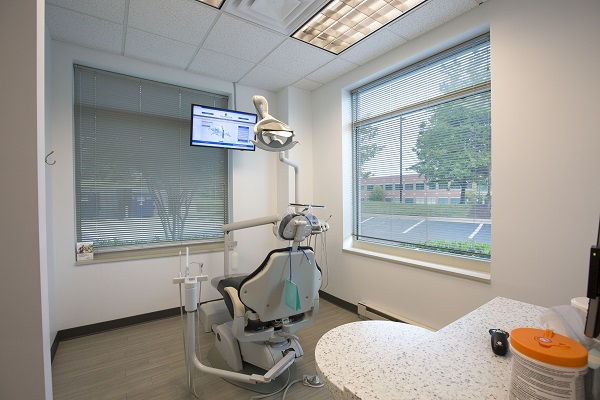How Does a General Dentist Treat TMJ?

TMJ disorder affects the joints on either side of the head, both of which connect to the jaw. When there is any sort of dysfunction, the result is a disorder, which is often diagnosed, treated, and managed by a general dentist. Understanding the cause of a patient's TMJ disorder helps the dentist determine the appropriate course of treatment.
Visiting a general dentist for TMJ disorder
General dentists are dental professionals who have been properly trained in how the jaw functions, which makes them experts at addressing TMJ disorders. General dentists can offer their patients suffering from TMJ pain a few different treatment options to ease their suffering. However, since every patient is different, consultation appointments are necessary.
According to the American Dental Association, diagnosis is an important step before treatment, which includes a dental examination of checking the joints and muscles for tenderness, clicking, popping, or difficulty moving.
Options a dentist can offer for treating TMJ
Below is a list of some of the more common treatment options that general dentists offer dental patients diagnosed with TMJ.
Oral appliance therapy
TMJ patients who clench or grind their teeth will often benefit from wearing a custom-made nightguard. Nightguards are beneficial in that they help prevent someone from clenching or grinding their teeth when sleeping, as this is known to make TMJ worse. They are also designed to realign one's jaw while sleeping, which helps take any tension off the jaw joints. Dental splints, worn during the day, are an option for patients who need more than night treatment.
Prescription medications
Some TMJ patients will benefit by taking a medication that a general dentist prescribes. The overall goal of these dental medications is to help patients relax enough so that they are not placing any stress in or around their jaw area. General dentists may recommend various medications, including muscle relaxants, anti-anxiety drugs, anti-inflammatory medications, and analgesics. In addition, for patients who are experiencing extreme TMJ pain, temporary prescription pain relievers may be an option.
Performing certain exercises, and relaxation techniques
There are certain exercises a general dentist can recommend for their patients in order to strengthen their jaw muscles. The purpose of these exercises is to stretch the entire mouth area, which in turn helps to make the jaw area stronger. Once the jaw is made stronger, patients may experience reduced to no pain at all.
Those suffering from TMJ may also benefit from learning a few relaxation techniques. The purpose of relaxing the jaw area is to reduce the amount of stress in the jaw, which in turn helps to reduce the amount of pain being experienced.
Find out more about TMJ treatment
Have any questions about TMJ? Unfortunately, there is typically not just one treatment that reduces and eliminates TMJ pain, which is why a consultation is necessary. Reach out today to find out more or to get started with an appointment.
Are you considering TMJ treatment in the Sterling area? Get more information at https://www.titandentalcare.com.
Check out what others are saying about our dental services on Yelp: TMJ in Sterling, VA.
Related Posts
Jaw pain can be irritating and a lot of people aren’t sure what the reasoning behind it may be. While there are many causes of jaw pain, knowing what the most common causes are can be extremely helpful for anyone experiencing pain or discomfort in the jaw.When a person is feeling jaw pain that is…
As a TMJ dentist in Sterling, we regularly treat patients that have persistent headaches. Persistent headaches are a common symptom of TMJ, especially if one notices them in the mornings. To understand how the jaw can impact whether or not one suffers from headaches, consider how the temporomandibular joint secures the mouth and jaw to…
We will find a working solution to treat your jaw pain and help you lead a better life without constant pain.As a TMJ dentist, we can treat TMJ disorder that interferes with eating, speaking and sleeping with pain in the jaw. We will help identify your symptoms and possible causes of TMJ, to customize the…
Some people will never need oral surgery to correct an issue in their mouth. However, if your dentist told you that you need a procedure, it can feel scary. Some processes are complex and may cause some discomfort. To help you feel more at ease, you should prepare yourself before the appointment.Most visits to the…


